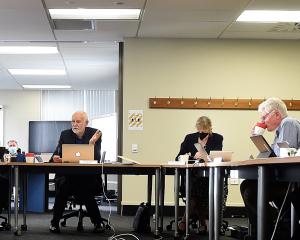The Southern District Health Board's hopes of saving about $1.2 million a year by charging for laboratory tests ordered by private specialists have been dashed by the Government.
Minister of Health Tony Ryall announced yesterday public funding of such tests will continue and the three district health boards which are charging for this service must stop doing so when their contracts expire.
However, Southern chairman Errol Millar said the minister's decision came as no real surprise and the board had not included any projected savings from charging in its budget for the coming year.
The old Otago and Southland boards had each voted for the controversial proposal in mid 2008, but their plans never got off the ground because the incoming Government declared a moratorium on such charging while an independent review was carried out.
Yesterday's announcement was welcomed by the New Zealand Medical Association, the Health Funds Association of New Zealand and Southern Cross Healthcare Group, but criticised by the Green Party which described it as robbing the public health system of $20 million a year.
Mr Ryall said he understood doctors interviewed by the reviewers were almost unanimously opposed to charging for the tests.
Asked about inconsistency in the approach because privately ordered radiography is paid for by patients, Mr Ryall said for years the government had paid for private patients' medicines and laboratory tests.
"The question is where you draw the line.
"In this situation patients paid for lab tests depending on where they lived. It wasn't fair and we needed a national policy."
The $68,000 review by Auckland consultant Health Outcomes International did not make a recommendation on whether the charging should apply.
Its recommendations related to work that the ministry should do if it decided to implement charging across the country.
It looked at the three district health boards which have been charging for the privately referred tests since 2006 - Capital and Coast, Hutt Valley and Tairawhiti.
This was "strongly reliant" on anecdotal feedback from those involved as available data did not allow a robust quantitative analysis of changes in the use of laboratory services.
It found that the average cost per patient for a test was between $62 and $86 in the Wellington area, although some individual tests could cost several hundred dollars and there were patients requiring several tests, who faced high costs.
The charging policy disproportionately affected patients without insurance cover for privately referred tests who had several tests or chronic conditions with regular testing.
Unintended effects included patients choosing to delay, reduce or forego tests to avoid cost, patients transferring from private specialist care to the public system and general practitioners ordering tests for private specialists to avoid patient costs.
Reviewers said the extent of this could not be verified, but anecdotal reports suggested they were occurring enough to be of concern.
Advertisement













